Wherever you go in the world, money is what makes the place move.
Everyone uses it at every level of society, for every single aspect of their lives.
Money is bound up so tightly with our everyday lives that, again no matter where you go in the world, the locals are likely to have found some slang terms for referring to money.
Whether those terms are old or new, there are going to be a lot of them.
This is of course true of the Spanish-speaking world, too.
So, today, we’re going to look at a comprehensive list of slang terms in Spanish for money.
Let’s get started.
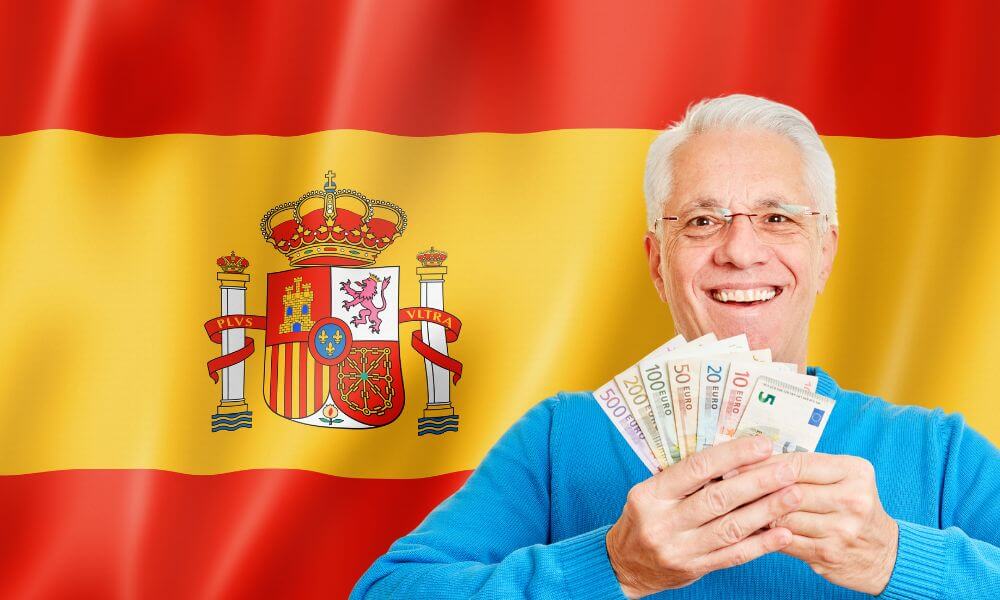
Tolete
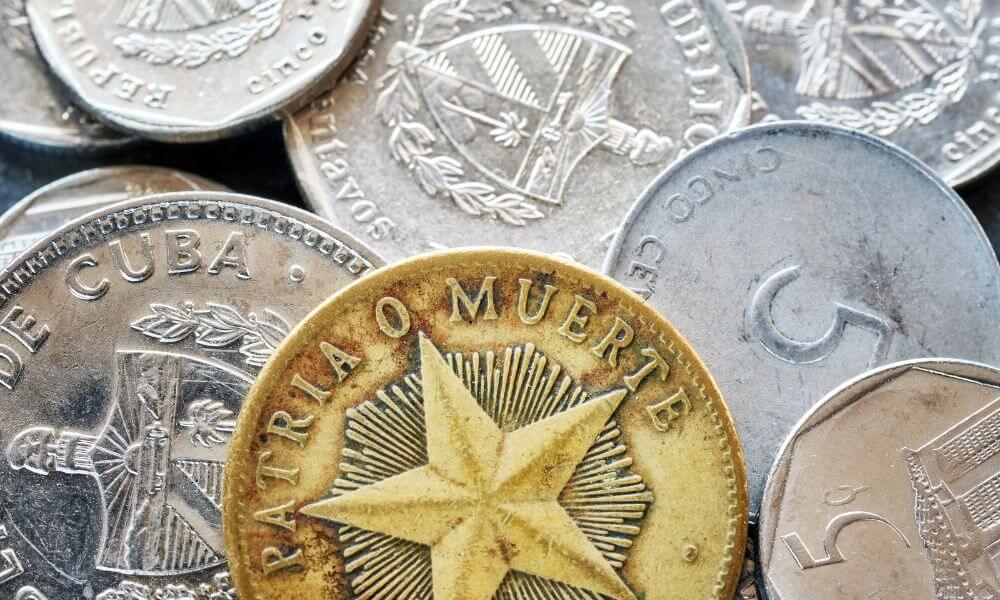
Let’s start off in Cuba and the Dominican Republic, and with a slang term that you should be a little bit careful with.
In these places, this slang term means money or peso.
However, anywhere else, it could mean something more private on a man, so keep that in mind before you use it!
It’s borrowed from the French word tolet, which means rowlock or oarlock.
How this came to mean money is really not clear, and as I say, it has a rather different meaning in most of the Spanish-speaking world.
Teca
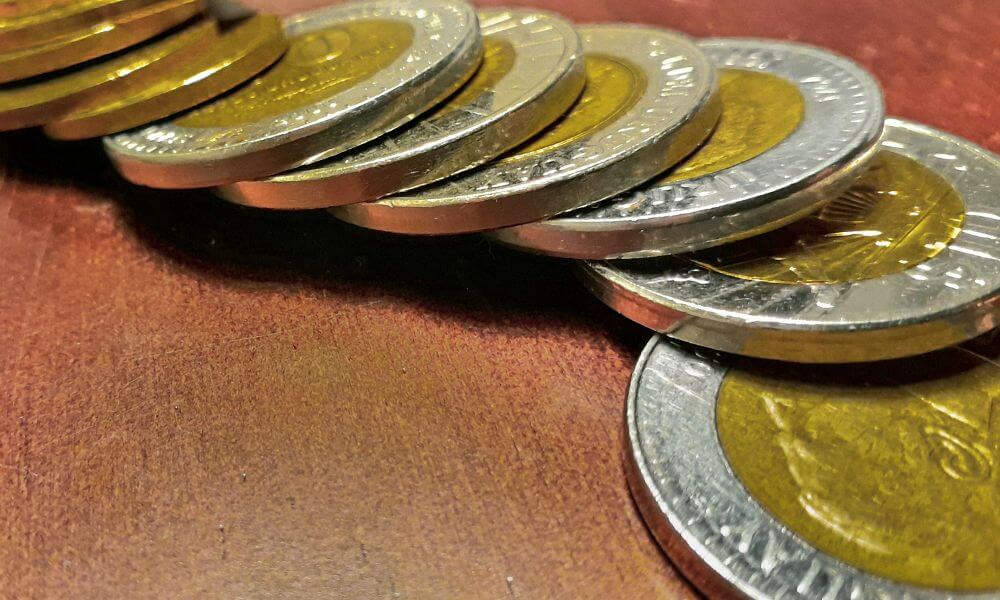
Our next term is heard mostly in Argentina and Uruguay.
The word in literal Spanish means teak, which is a kind of tree often harvested for valuable timber.
In modern Spanish regional slang, it has come to be a slang term for money.
Again, it’s not completely clear where this term comes from.
It could be a reference to how valuable teak wood is.
On the other hand, it’s thought to come from the Spanish argot Lunfardo, where teca also means money.
Maracandaca
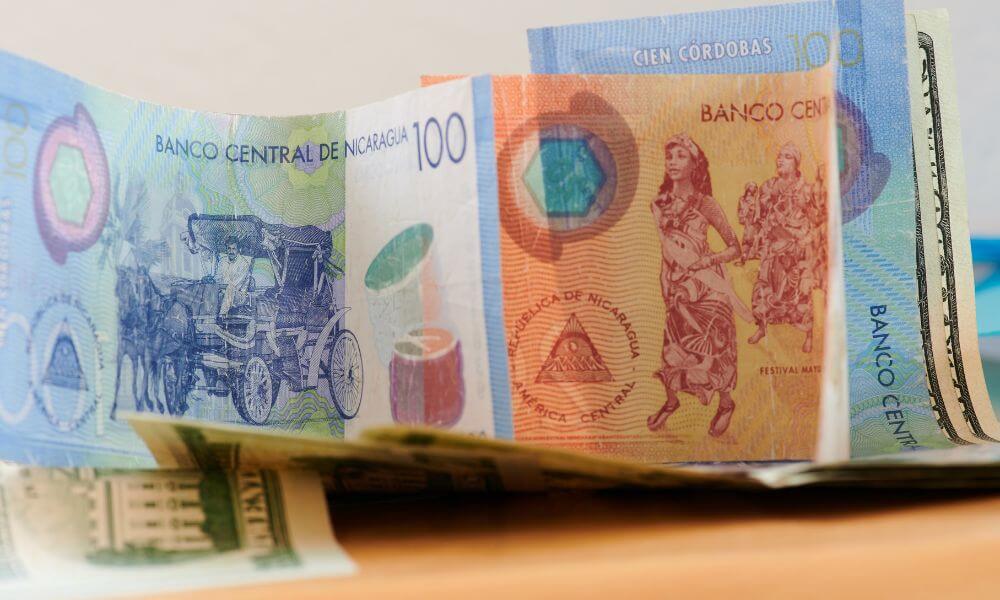
Maracandaca is heard usually in El Salvador and Nicaragua, and is probably among the more common general slang term for money in those countries.
It is more commonly used in Nicaragua, though.
It specifically means a single coin equal to only one Nicaraguan peso.
It’s thought that its history stretches back to the macaco, which was one of the first coins that was used in Central America.
Muna
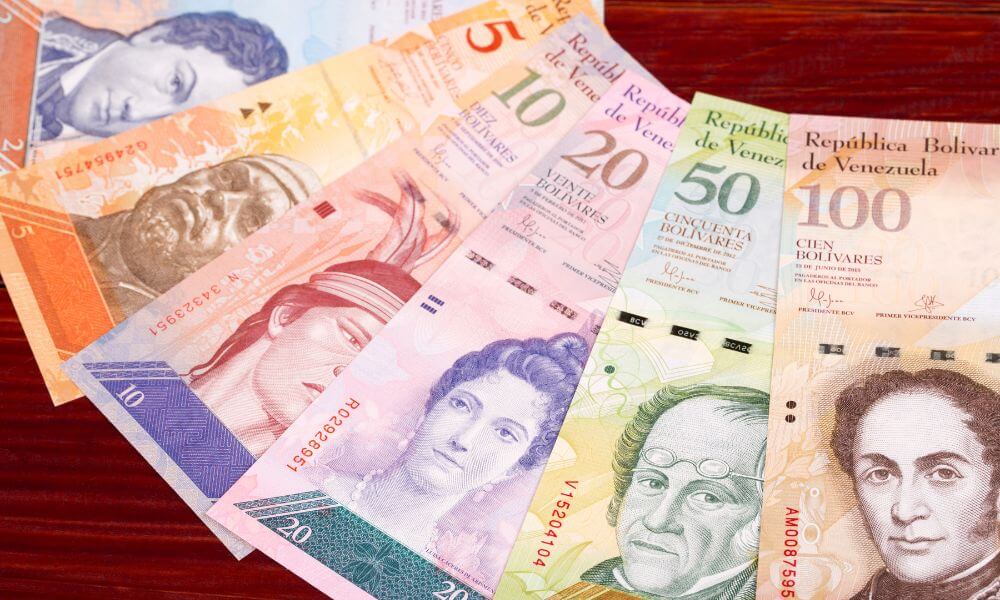
This next one is heard exclusively in Venezuela.
Here, this word is another catch-all for any amount of money.
It could be a lot or only a little.
It’s simply what you would say colloquially to refer to money.
Again, the origin of the term is far from clear.
We really have no concrete theories that satisfy any scholars of language.
The best guess we can make is that there is a connection to the term munir, meaning to give.
Unfortunately, though, we don’t know for sure.
Suelto
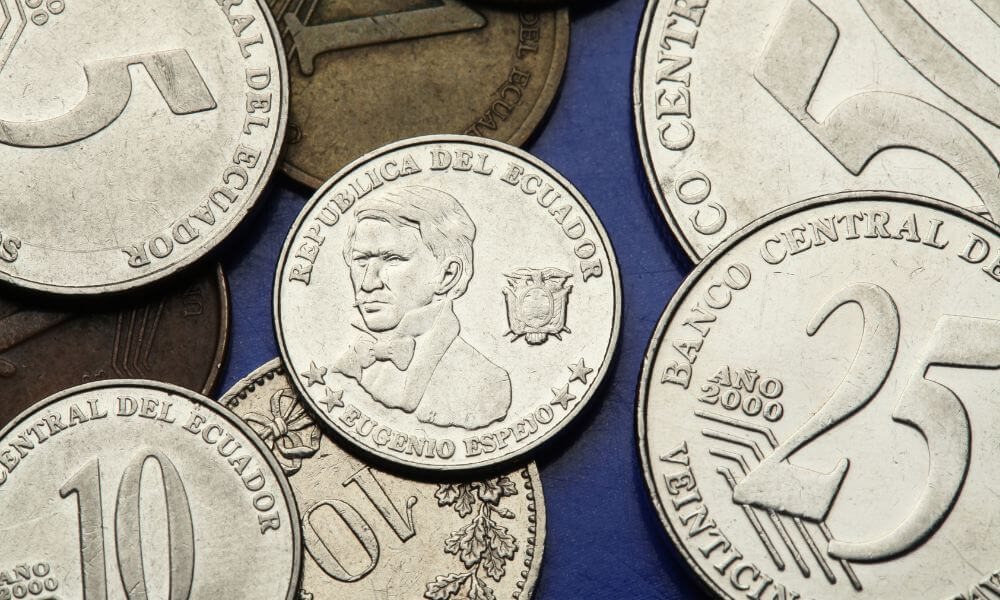
This one is distributed a bit strangely.
It is heard primarily in Ecuador, but also in Spain and Mexico.
It has roots in diverse places in the Spanish speaking world.
It specifically is a slang term referring to small amounts of change, the handful of coins rattling around in your pocket.
The literal meaning of the term is something that is untied or loose.
It’s probably the same sense of “loose” change that we have in English.
This word comes from Old Spanish and ultimately the Latin soltus, meaning to loosen.
Kilo
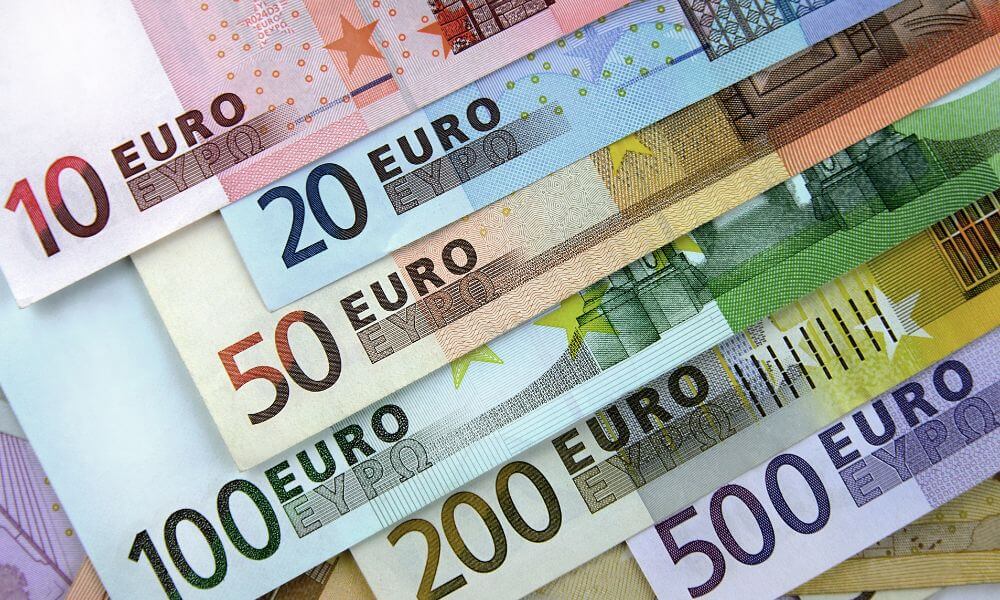
You might also see this one spelled quilo. It has a very different meaning depending on where you hear it.
It is used in both Spain and Cuba. In Spain, the term has the meaning of one million pesetas, which is the former currency of Spain.
Today, it just means a million of currency—the Euro, as things stand.
In Cuba, though, it means just one penny.
Both slang terms ultimately derive from the old Spanish currency.
Moni
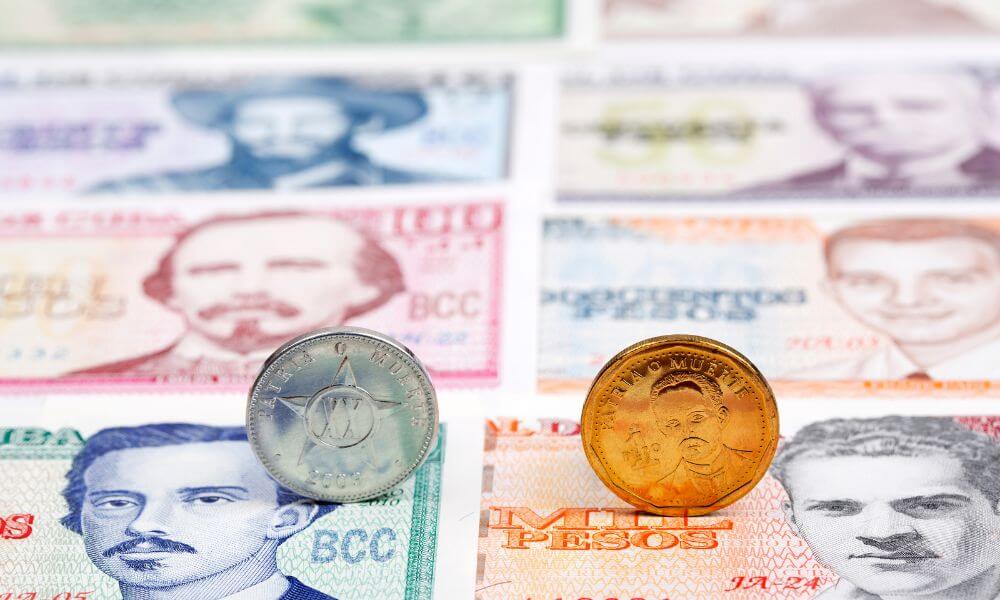
This next one is used in Cuba, and can also be monis.
The origins of this term should be fairly clear to an English speaker. It’s simply a borrowing of the English “money”.
As I said, this one is mostly used in Cuba, but you’ll be hard-pressed to find a Spanish speaker who doesn’t understand it.
Cuartos
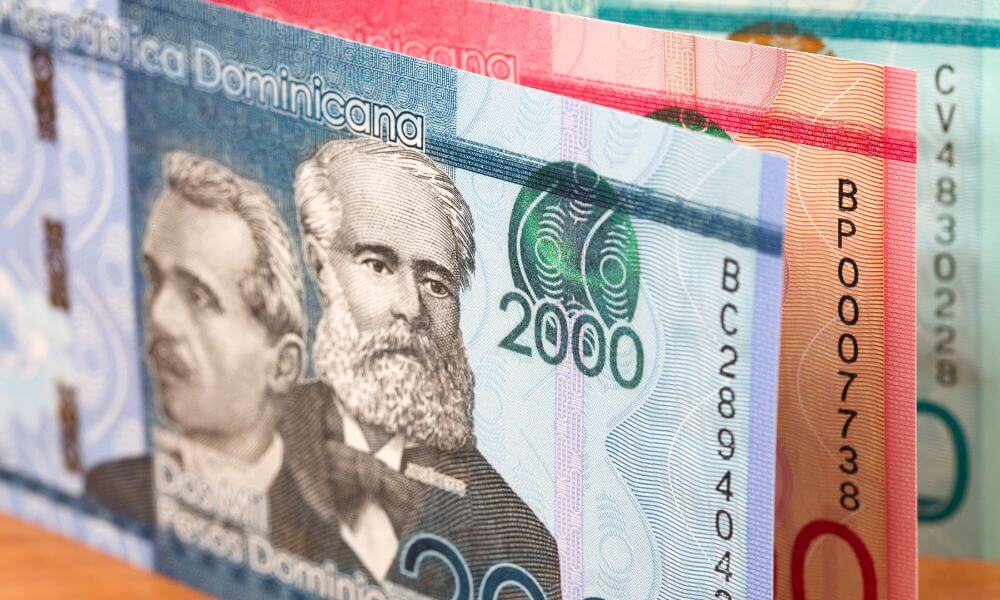
This one is mostly used in Spain, but can also be heard in the Dominican Republic.
It again simply means money, with no more specific sense than that.
It’s a general slang term.
In terms of its origin in this meaning, we aren’t really sure.
It has a few literal meanings in Spanish, including “room”, “fourth” and “quarter”.
It could have originally been a slang term for a quarter of a single unit of currency, such as a peso.
But we aren’t really sure.
Parné
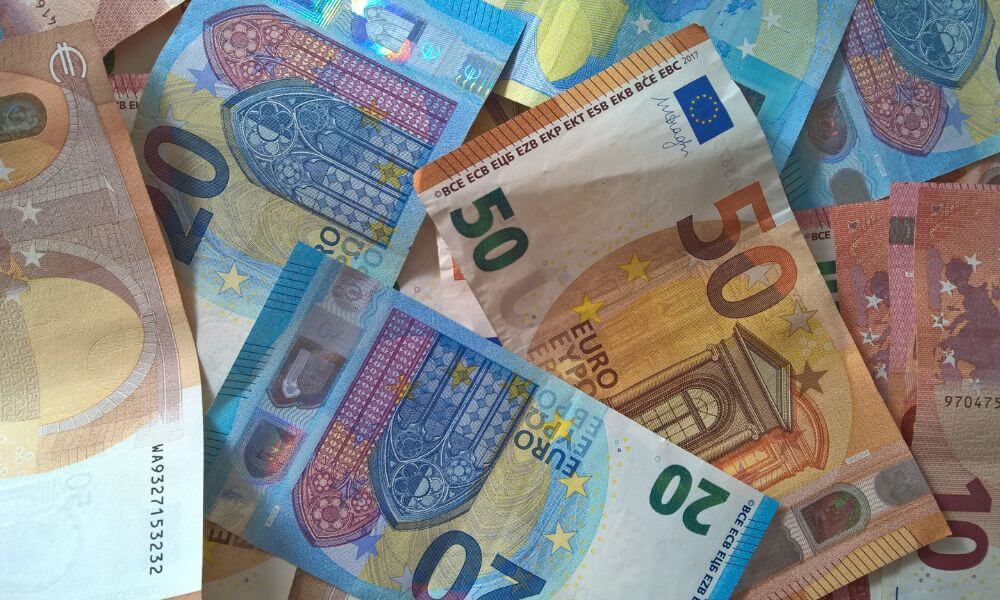
This one is pretty much exclusive to Spain itself, and often appears in things like flamenco.
It’s good to know if you’re travelling to more rural areas of Spain.
Again, it’s no more specific than just “money”, and doesn’t refer to a specific amount.
Interestingly, it is borrowed from Caló.
This is the language of the Romani population in Spain and Portugal.
In that language, it also simply means money.
This is why it is so specific to the Spanish region.
Quivo
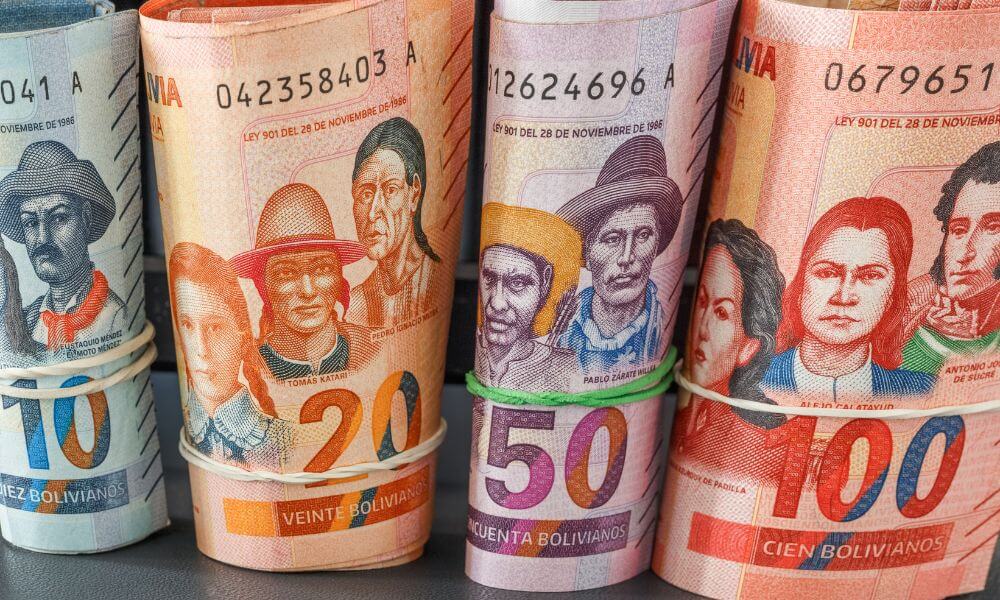
Quivo is perhaps among the most obscure of the terms on this list.
It doesn’t really seem to be used outside of Bolivia, and within Bolivia, it’s virtually impossible to tell where this slang comes from.
The only comparable Spanish term is the Mexican slang quiubo, which has the sense of “what’s up.”
But that doesn’t really help us much, so this one may remain forever a mystery.
Chirola
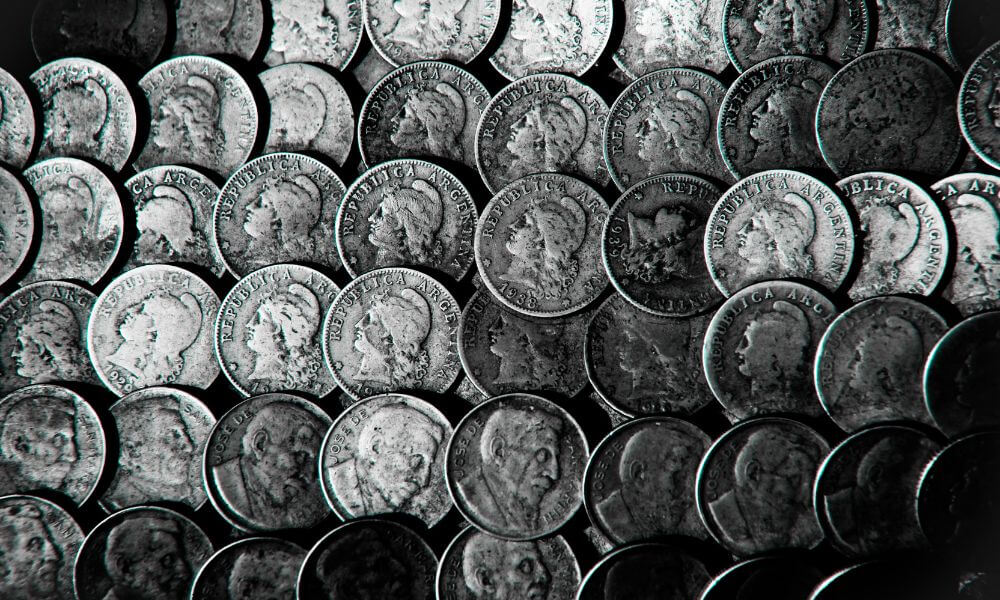
Chriola is a term heard only in Argentina, really.
It is part of the Lunfardo Argentinian slang, which we touched on earlier.
This is another one that refers to low-value coins, small amounts of money, and pocket change.
It’s most often used in the plural.
As I said, it comes from the Lunfardo argot, though we can’t say much more than that in terms of its origin.
Morlaco
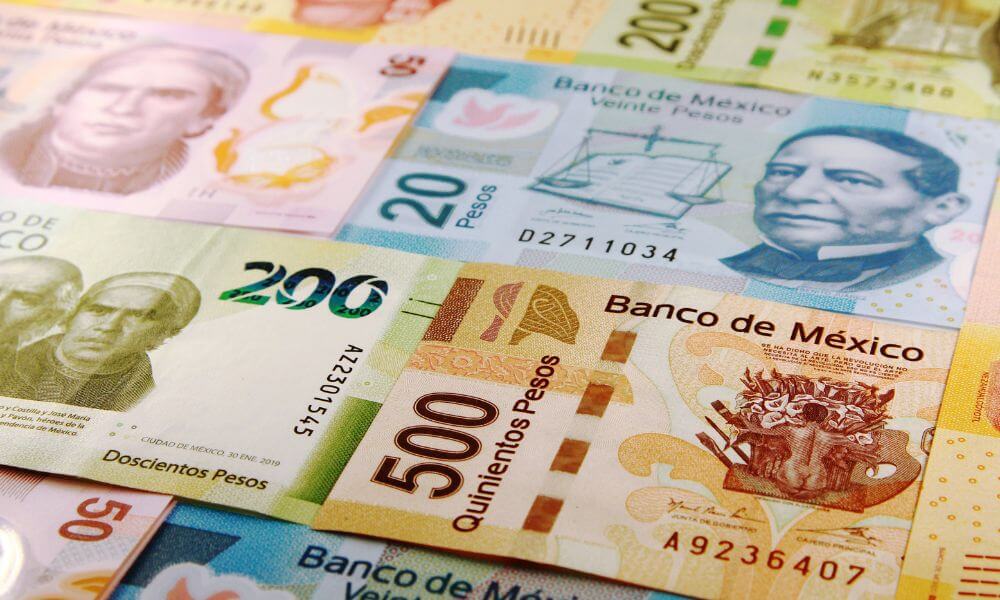
This one is used throughout Central America and can be heard in El Salvador, Mexico, and Uruguay, while also being used in Argentina and Chile.
This one is another one from the Lunfardo argot, and seemed to enter the Latin American dialect in the early 20th Century.
How it took on this meaning is not really clear, though it could be related to the sense of a large fighting bull.
It’s not really clear.
Biyuya
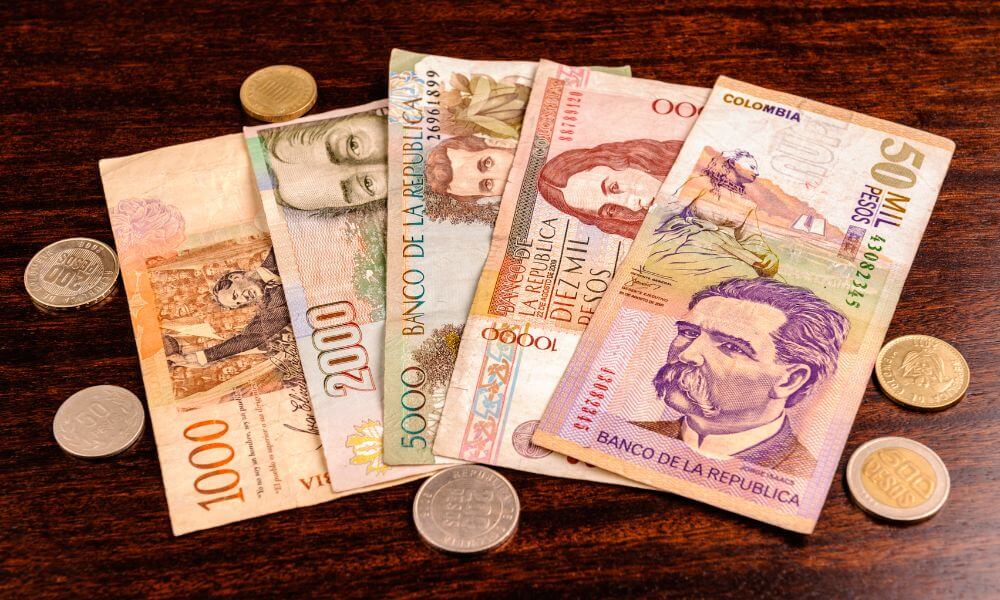
There are many versions of this next one, including biyuyo, billuyo, and billuzo.
It’s used throughout Central America, including countries like Costa Rica, Ecuador, Honduras, and Mexico.
It’s also used in some parts of South America, like Chile and Colombia.
All versions of this word just means money.
There’s nothing more specific to it.
Pela
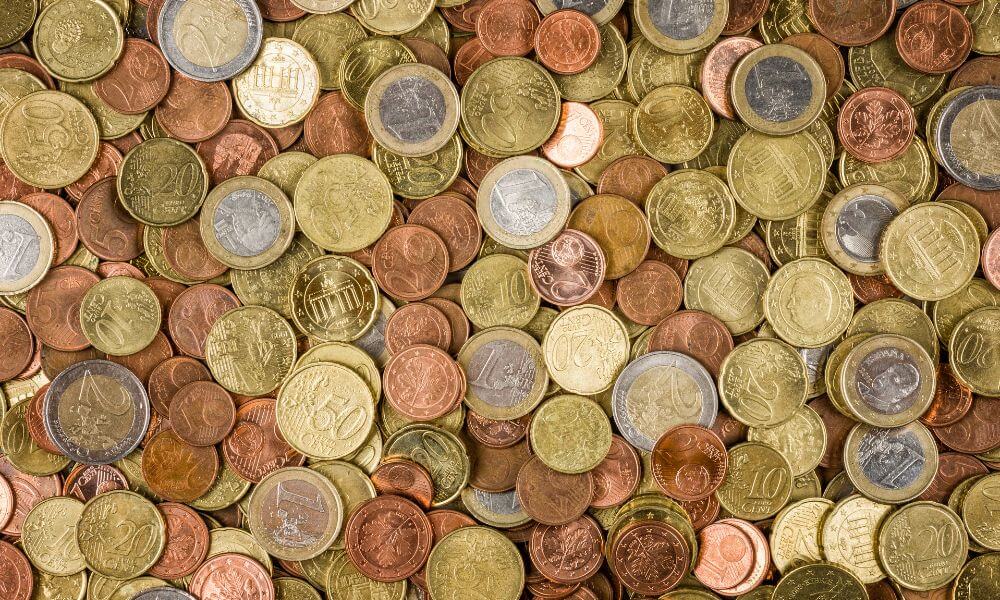
Pela is used pretty much only in Spain.
It’s one of the most ubiquitous slang terms for money in Spain itself, and you’re likely to be understood where ever you go if you use this term.
It usually refers to more than just pocket change.
It most likely derives from the Catalonian for the old Spanish currency the peseta.
This originally came into Spanish from Porteguese, which in turn got the term from Vulgar Latin per.
Plata
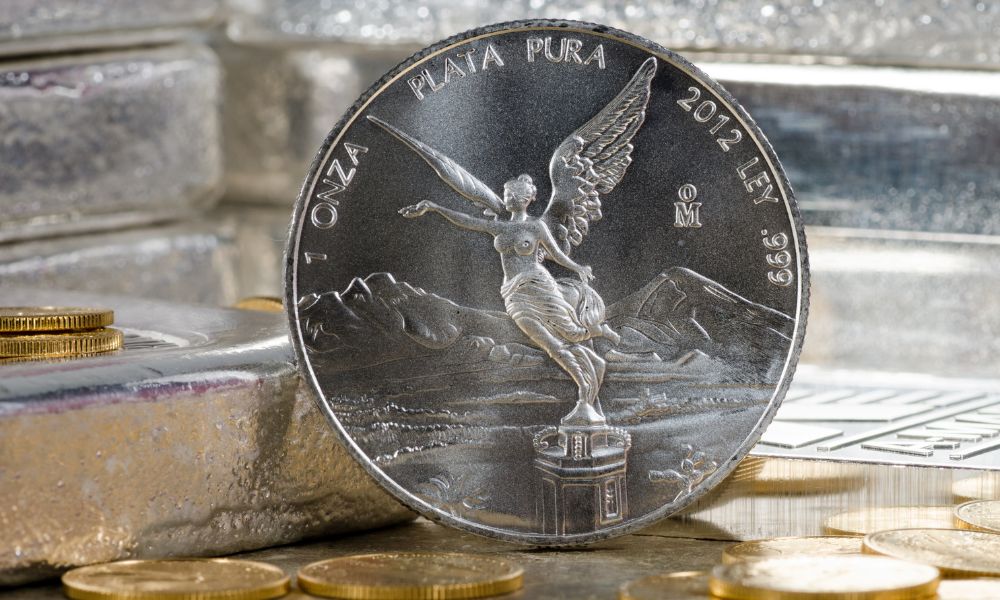
This one is also more or less universally used throughout Latin America.
It’s so common that it almost skirts the line between slang and simply common, standard, accepted Spanish.
The word itself translates literally to “silver”, so you can see the connection.
Silver and gold were huge exports from that region of the world.
This, too, also derives from Vulgar Latin, where the word platta meant “wide”.
Silver was often made into wide sheets, and thus this slang term was born.
Mosca
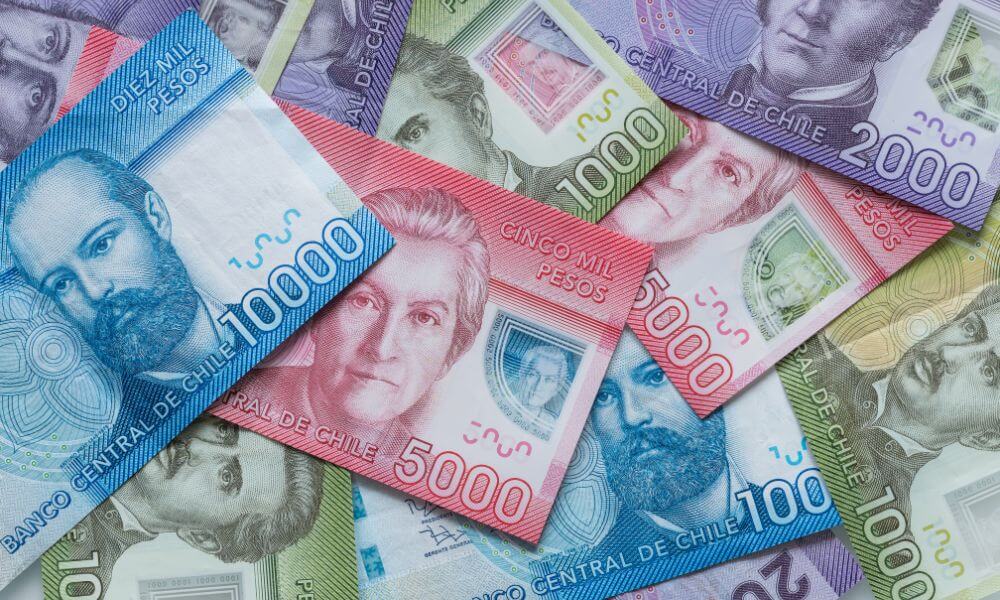
This one is also very broadly used in diverse parts of Latin America, from Chile and Argentina to Costa Rica and Honduras.
The literal meaning of the word is “to fly”, and a popular expression in Spanish was about how money “flies”.
Thus, it was not long until it came to mean money itself.
This derives ultimately from Latin musca.
Chatarra
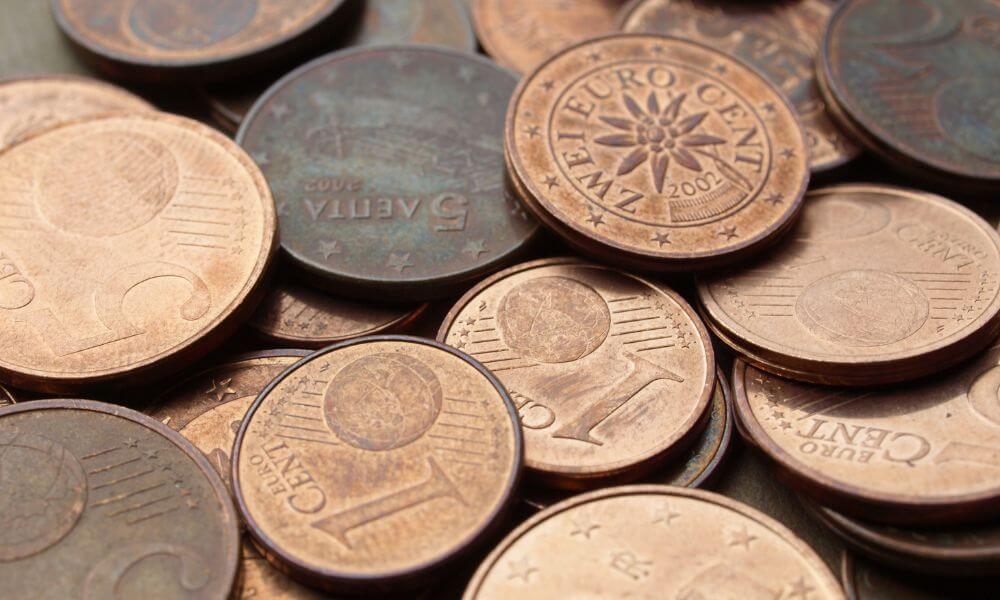
Next we have another term heard mainly in Spain itself.
It isn’t heard much outside Spain.
This one is really for smaller amounts of money and small change.
The literal meaning of chatarra is something like “scrap metal”.
Scrap metal is very often traded for money by the poorest and most desperate.
This term is borrowed from the Basque language, where txatarra means “something old”.
Luca
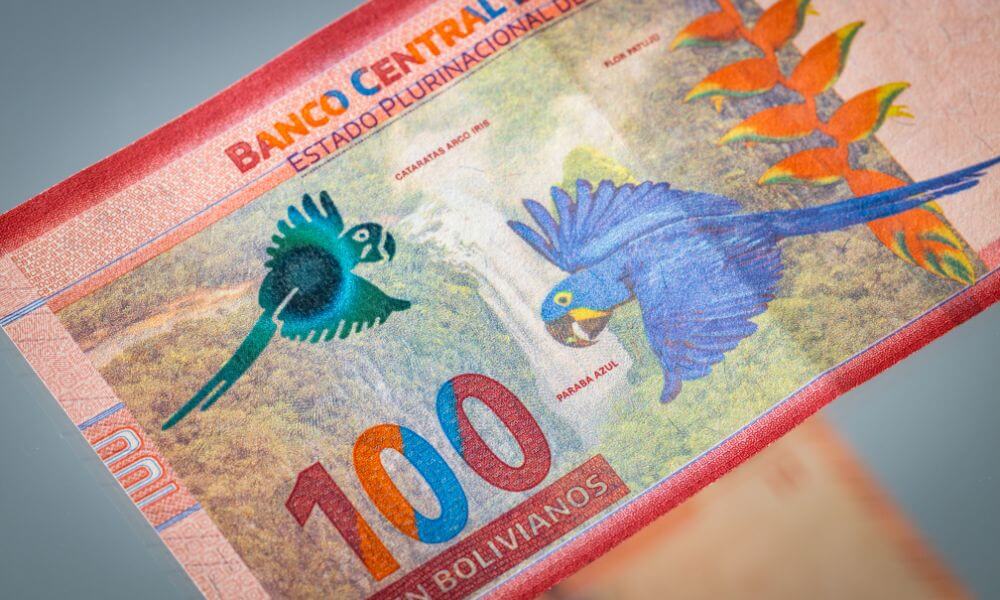
This one is used throughout South America, mainly in Argentina, Bolivia, Chile and Colombia.
You’ll also hear it in Ecuador, Mexico and Peru.
It can have a very different meaning depending on where you are, though.
In most of the places it’s used, it refers to 1,000 of the local currency or pesos.
However, in Peru, it means only one peso.
It seems also to come from the Lunfardo argot, where the Caló term luca means one thousand.
Billete
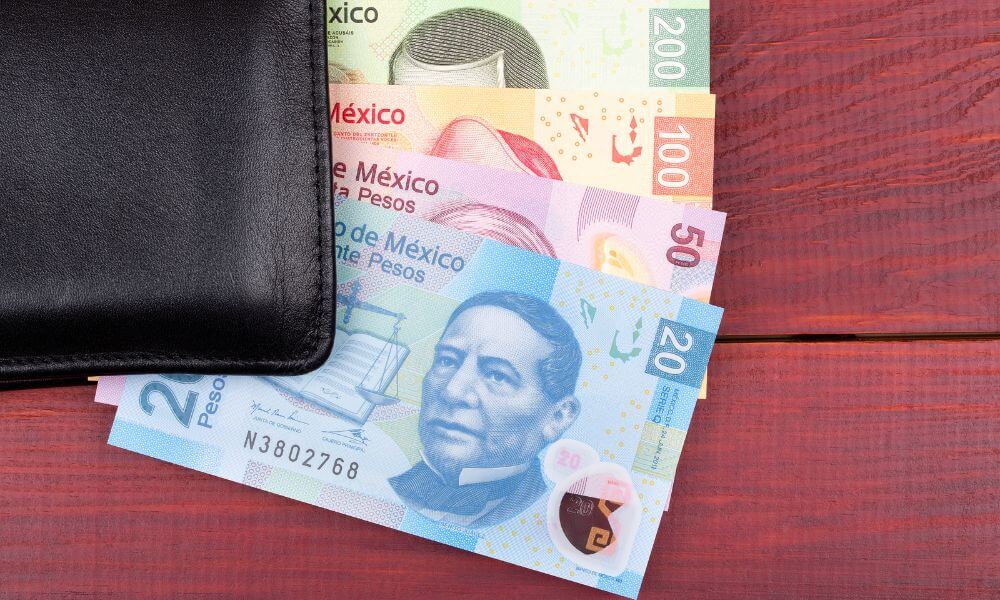
Another one used in virtually all corners of Latin America, billete has a very specific functional meaning.
It refers specifically to bank notes, of any denomination.
A bank note is a billete in Latin American slang.
It can also just mean money.
It derives from the French billet, which meant ticket or bank note.
Guitarra
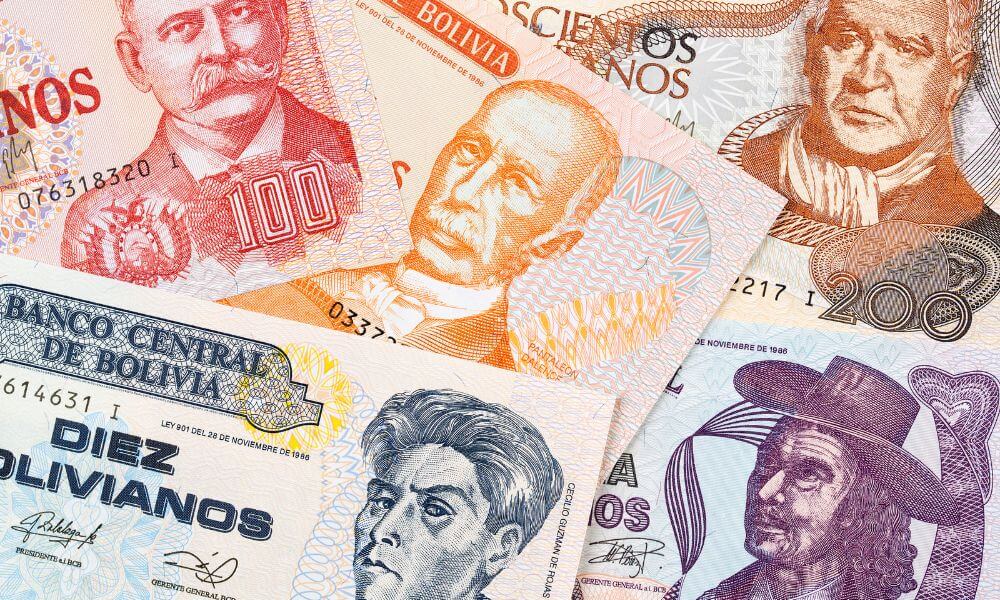
You might hear guitarra in Argentina, Chile, Bolivia, Costa Rica, Uruguay or even Spain.
Indeed, you probably recognize this word, as the standard Spanish form is just the word for guitar?
In Bolivia, if you hear guitarra, they are usually referring to money.
On the other hand, if you hear the form guitar, this also means money in a lot of other countries that we mentioned, including Spain.
Lana
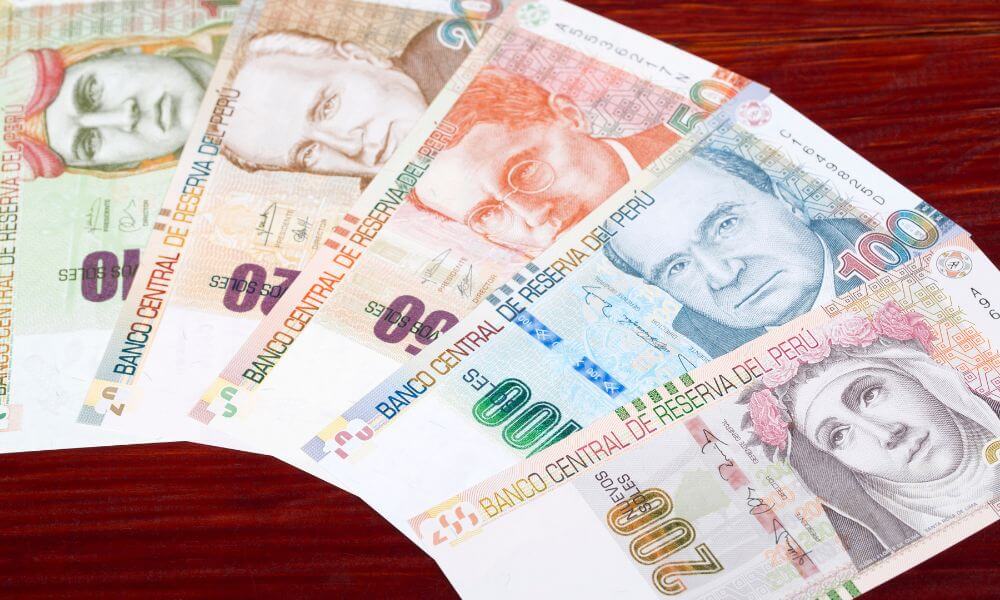
This one you won’t hear much outside of Mexico, Panama, and Peru.
The word literally translates to “wool”, and it’s one of the most common terms in Mexico to refer to money.
This popularity has naturally spread it to other countries.
In the early industrial age, wool was one of the most valuable commodities you could trade in, especially in the US.
So, someone with lots of wool was rich, and thus the word itself came to mean money.
Pavo

In Spain itself, if you hear the word pavo, you may be overhearing a conversation about Christmas dinner—pavo is “turkey”.
However, in Spain, it has come to be a slang term for US dollars.
So, it does refer to money, but a specific kind of money.
It is probably borrowed from the Ancient Greek for peacock, though when it came to mean U.S. dollars is not entirely clear.
Harina
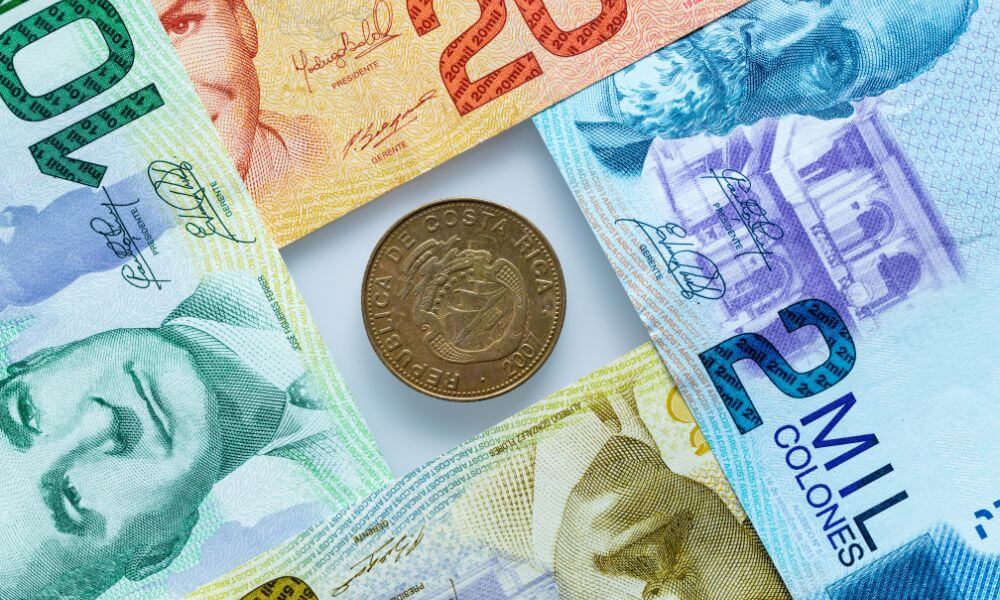
This one is quite regionally specific, only really used in Costa Rica.
The literal meaning is “flour”, and this is really our only clue to the origin of the term.
In use, it is a general term for money and does not mean anything specific in terms of amounts or denominations.
Its origin is unclear, though it seems a good guess that it’s simply based on the idea that flour can be used as a kind of currency.
Baro
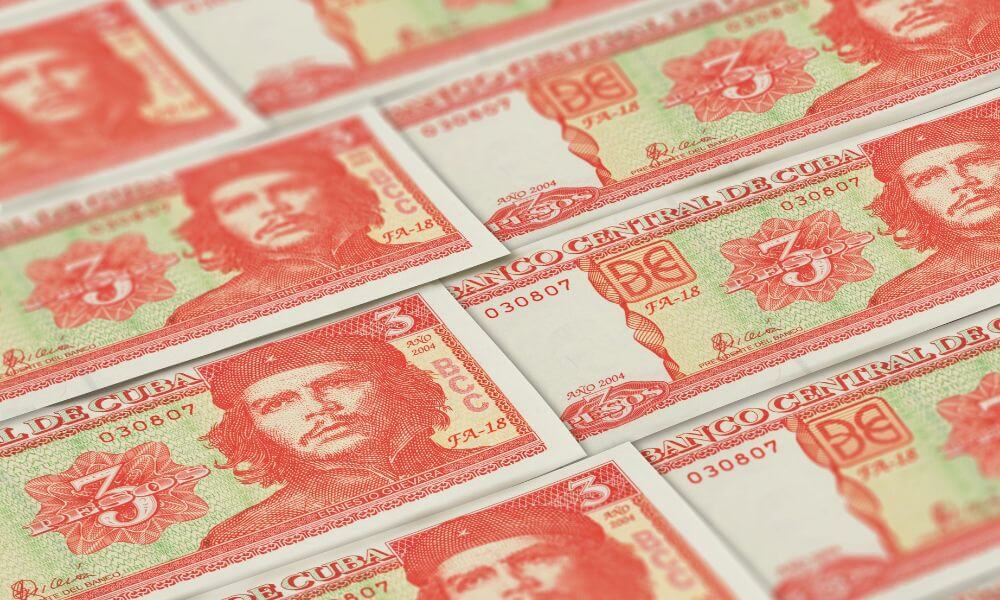
Baro is one you’ll hear in Cuba, Mexico, and the Dominican Republic.
It typically just refers to your local pesos and doesn’t mean anything beyond that.
So, for instance, you might use this term to differentiate it from American dollars.
In Cuba mainly, though, it can also mean a very large sum of money.
It seems to derive from the Old Greek baros, meaning weight.
Astilla
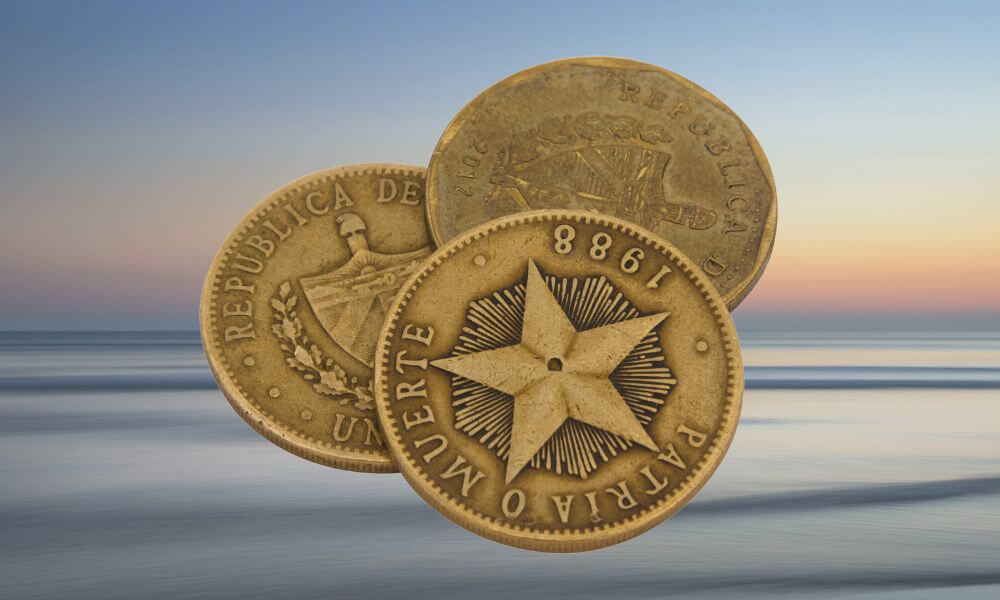
Used to an extent in Argentina but primarily in Cuba, astilla is another piece of somewhat obscure slang for money.
The word literally means “splinter”, and we don’t really know for sure why this term is used for money.
It may be derived from a longer phrase that includes the term and translates to “make a profit,” but beyond that, we can’t really say for sure.
Pasta
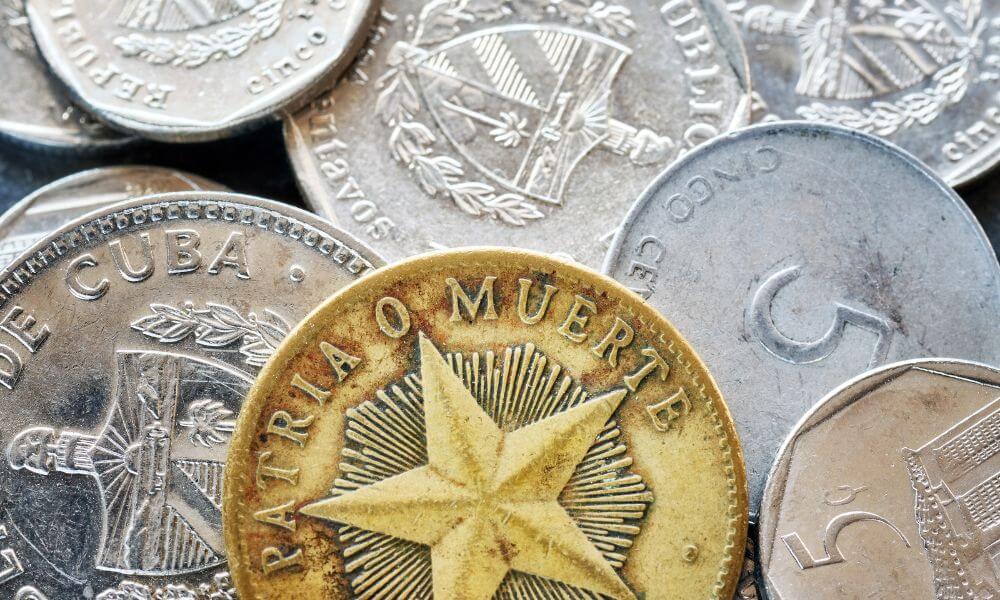
Heard in Cuba, Mexico, and Spain, this next one is no doubt a word you’ll be familiar with—but in a different context!
This slang term does not refer to the Italian food we all love, but rather from the name for a molten paste that was used to make coins.
In some places, this is still used to refer to money in general.
Perra

This is another term used in Spain itself.
Its literal translation is a less-than-polite word, though, so be very careful with how you use this one.
It can mean just any money, although the original term was quite specific.
Perra gorda was the name of the ten peseta coin, before the introduction of the Euro.
So, this one referred originally to certain coins, but now means just any money.
Cañas
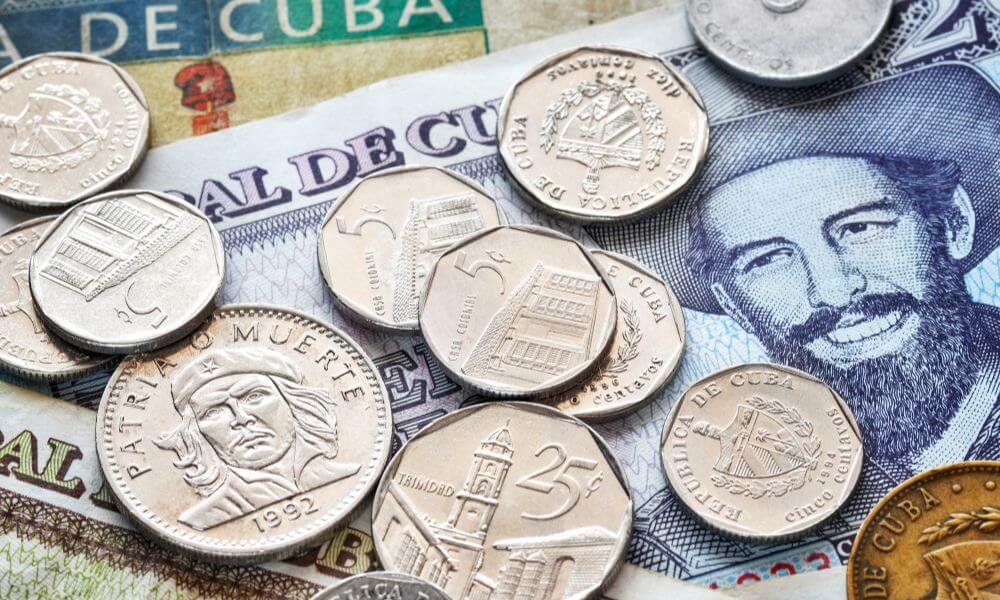
Our next word is another Cuban slang term.
Cañas is a way of referring to different denominations of pesos, and it originally comes from the word for sugarcane.
Sugarcane naturally is one of the most valuable resources the region produces.
So, it’s not surprising it has come to mean money.
Luz
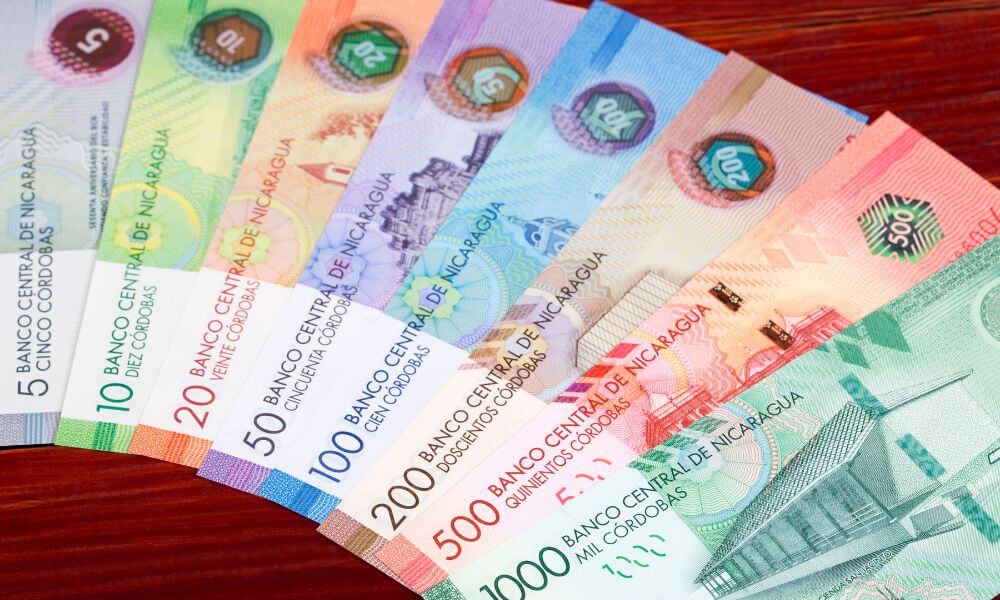
In Honduras and Nicaragua, you might hear money referred to as luz.
The literal meaning of this term is “light,” and can refer to any amount and any kind of money.
Typically, though, this is used to refer to coins.
It’s unclear how this slang term came about.
It may be a reference to the way coins reflect light—it may also be the idea of having a “light” coin purse, without much money in it.
Feria
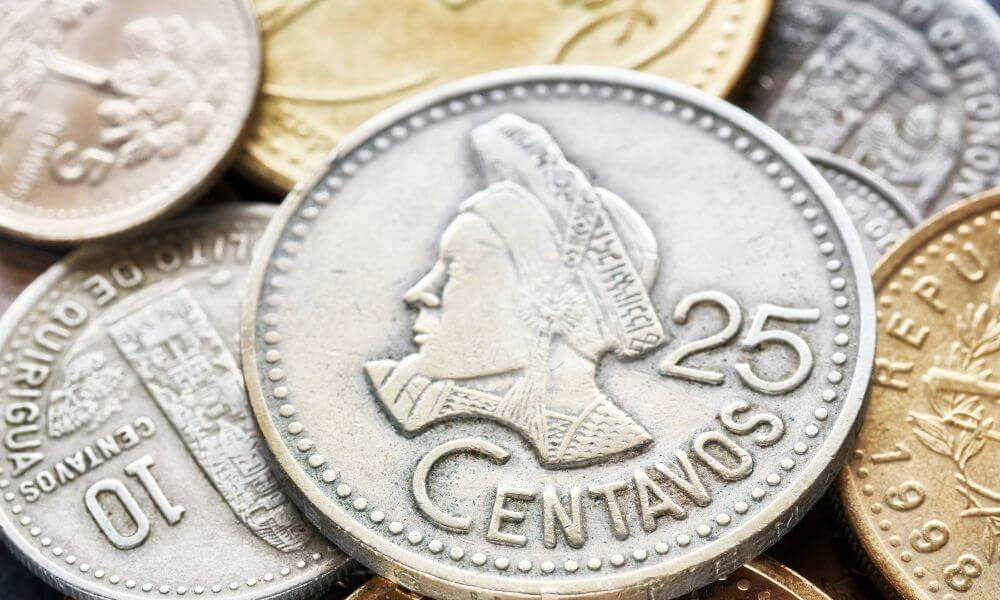
In Guatemala, Honduras and Mexico, you might hear money referred to as feria.
The literal meaning is of a carnival or a fair.
Probably as a result of that meaning, it has taken on the meaning of small change and small amounts of money.
Less commonly, it can also mean money in general.
The sense is most likely that this is the kind of money you would have or take to a fair—or perhaps what you would come home with after spending it all!
Papa
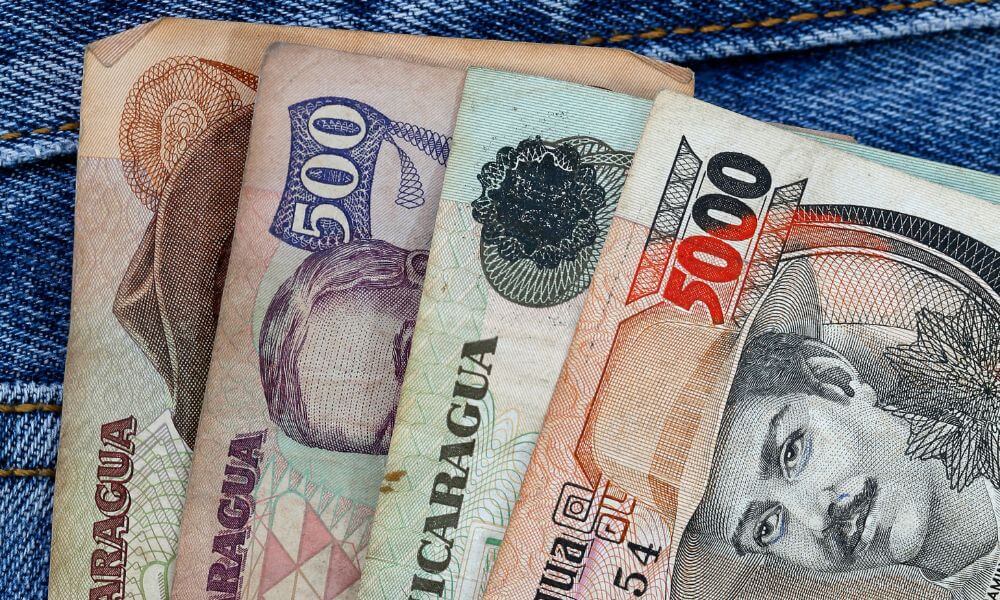
El Salvador and Nicaragua share this slang term for money.
In literal Spanish, papa means potato.
This is another example of how a basic commodity, such as food, came to be a stand-in for money.
At one time, potatoes were the main source of nutrition for many indigenous populations.
Thus, eventually, this came to just be another term for money.
Cushqui
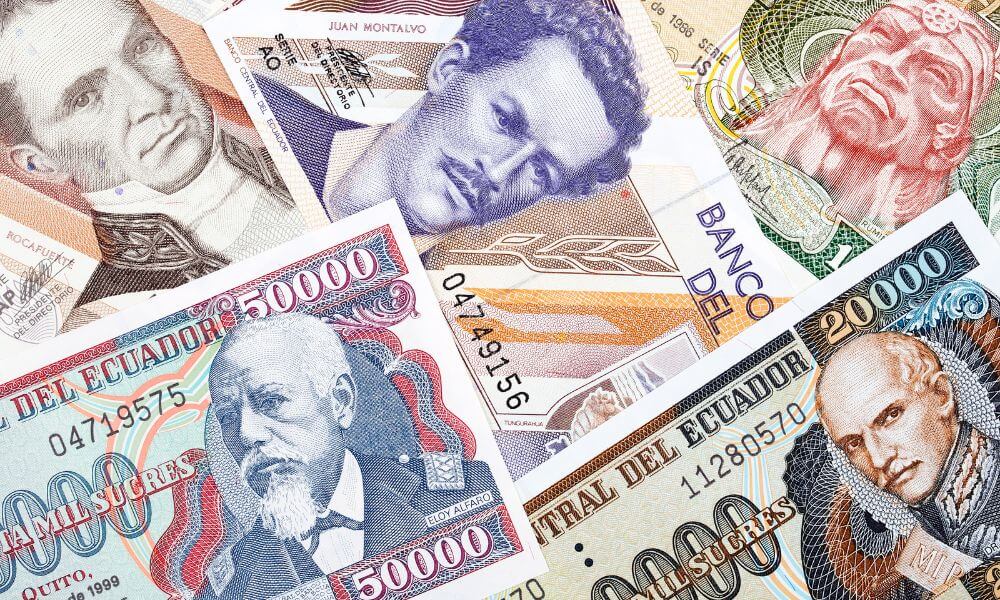
This one may not sound Spanish at all, and that’s because it’s not.
Though this one is widely used by Spanish-speaking Ecuadorians, it is simply a term borrowed from the indigenous Kichwa language.
In that language, kullki means money, and so it has developed a bit but still means the same thing.
Chen Chen
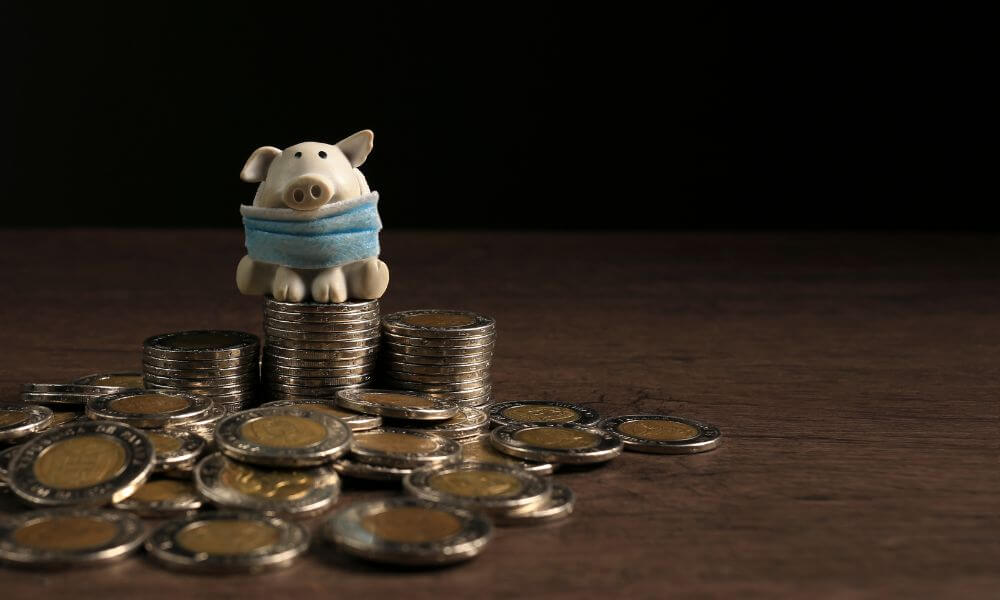
In Panama, we have an example of an onomatopoeic term for money, chen chen.
Think back to the English term, “ka-ching,” which is a reference to the sound a cash register makes.
In Panama Spanish, their interpretation was chen chen, and so this came to mean money.
Morralla
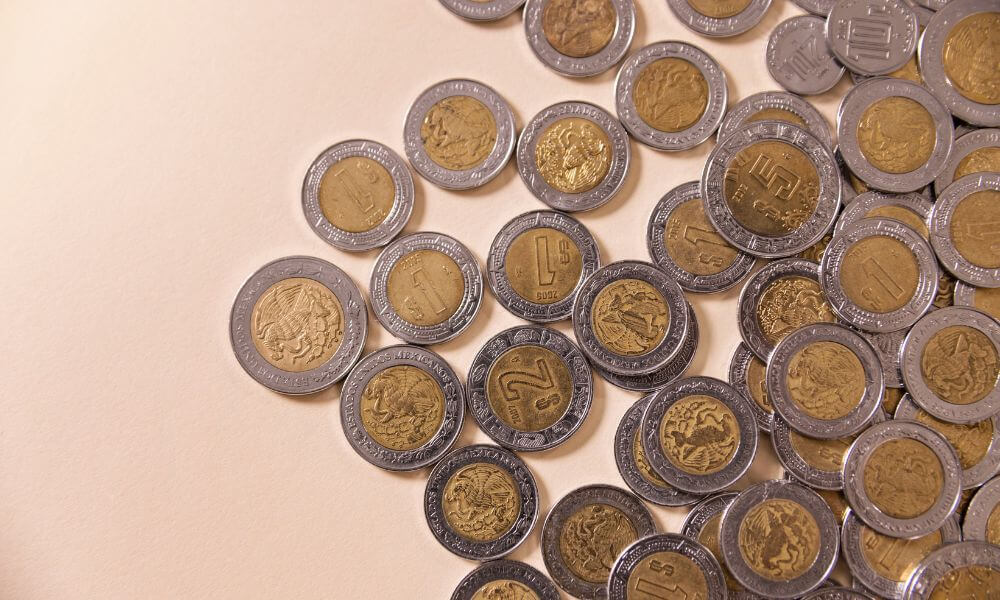
Back in Mexico, morralla is a slang term for small change.
The literal translation is “whitefish”, and it may have originated in the idea that whitefish were cheap fish sold for small amounts of money.
We aren’t really sure with this one, though.
Pirapire
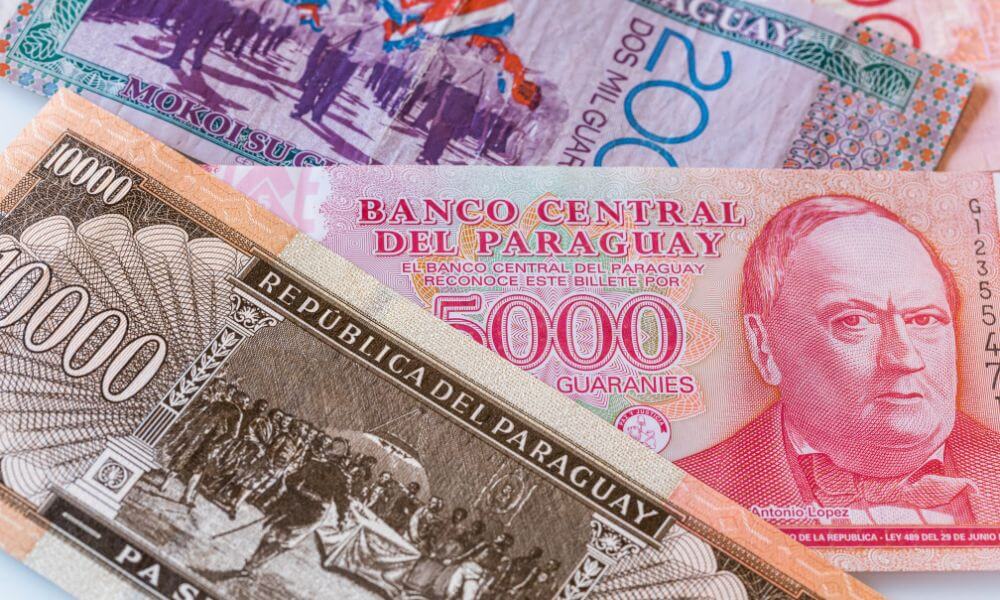
This one is exclusive to Paraguay, and is another indigenous word finding a home in the local Spanish dialect.
Separated, pira pire means the skin of a fish.
But when you put the two together, they mean money.
This comes from the Guarani people of Paraguay and some close by regions.
The language still has three million speakers today.
Pisto
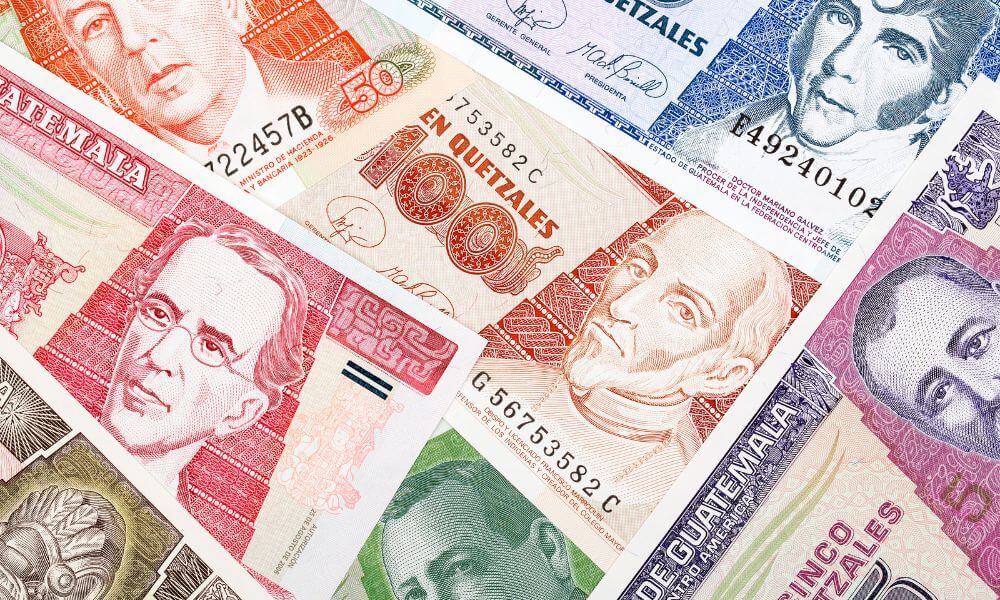
Also spelled pixto, this next one is heard in El Salvador, Guatemala and Honduras.
This is another example of food taking on the sense of money, as pisto is a Spanish vegetable dish of tomatoes, onions and eggplant or courgette.
In Central America, it also came to mean money, although how and when is entirely unclear.
Marmaja
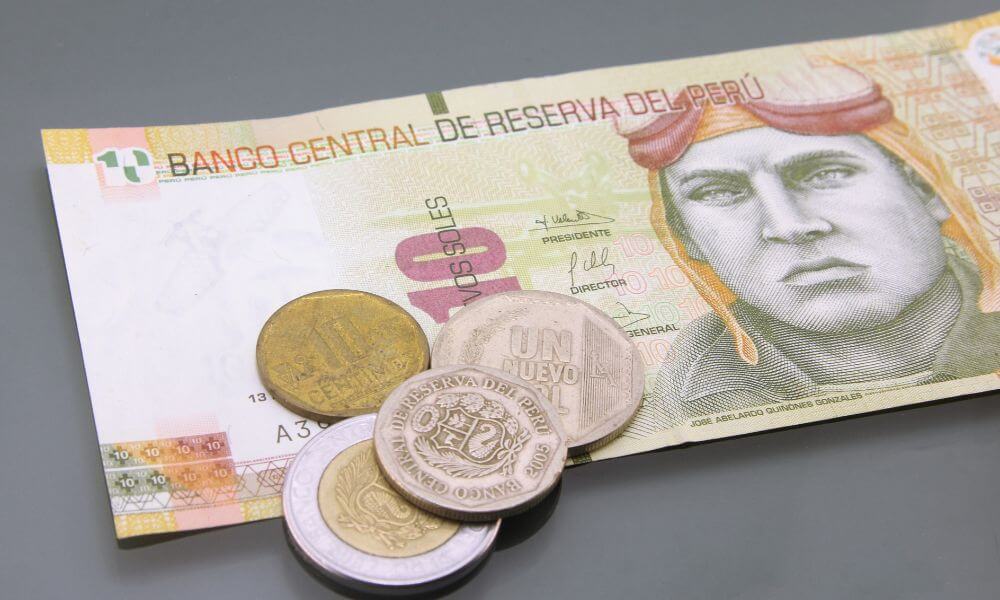
In Colombia, Honduras, Mexico and Peru is where you are most likely to hear this next one.
Marmaja is a slang term for money, and can mean any amount or type of money.
It isn’t really more specific than that.
The term derives from the Greek marmarízo, which means “shine” or “to shine”.
Again, the sense is probably that money shines, too, in the form of coins, though we can’t say for sure.
Menudo
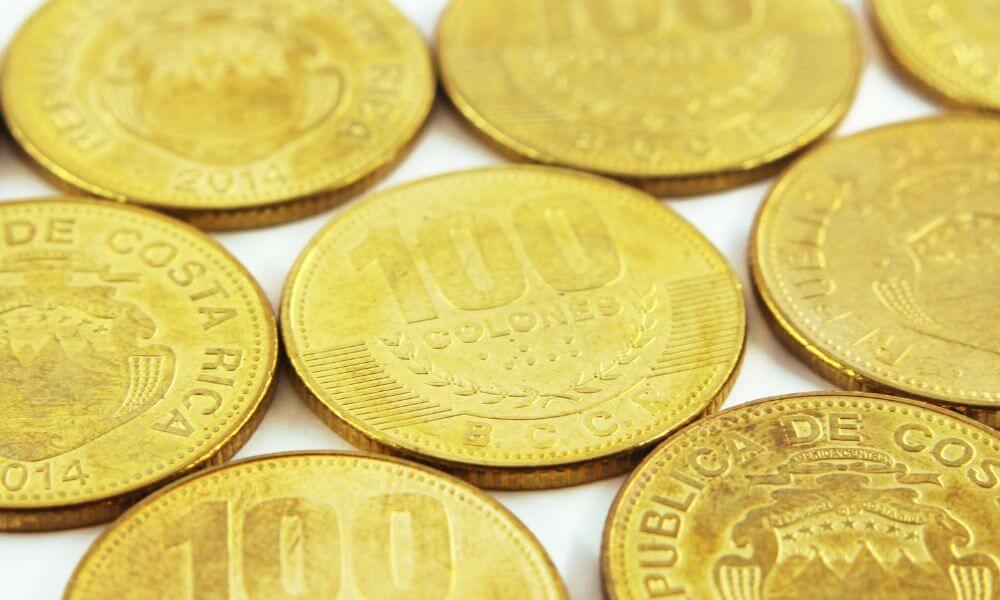
Heard mainly in Costa Rica, Cuba and Puerto Rico, menudo is used to refer to small amounts of change or small amounts of money in general.
Literally, menudo refers to something small.
This is probably the simplest one in terms of its origin.
In some countries, the term for “small” has simply been taken and applied to money.
Palo
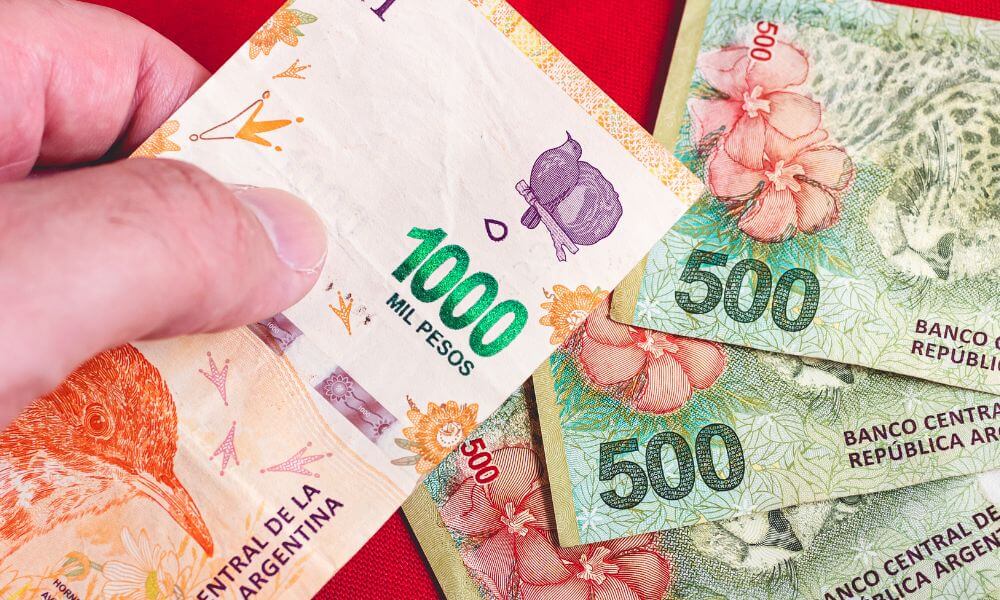
In Argentina, Colombia, Panama and Peru, palo is yet another slang term for money.
Again, there is a more literal translation, which is simply a stick or a club.
Something blunt and long. In the countries where it is used, it specifically refers to the amount of one million of the local currency.
How it gained this meaning is, again, unfortunately unclear.
It may be specifically about Palo Santo wood, which is sacred and rare.
Gamba
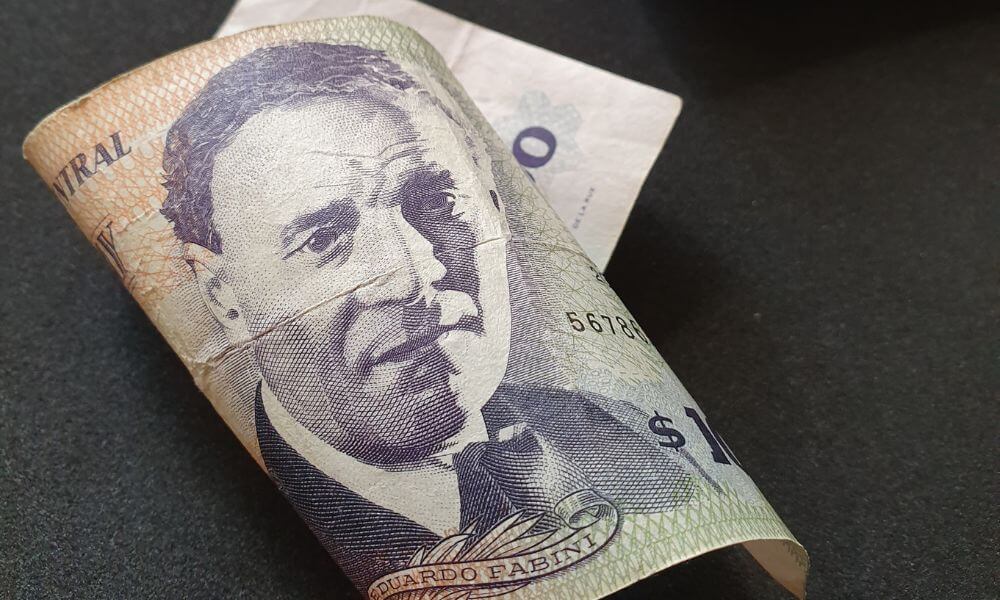
Moving to Argentina, but also Chile and Uruguay, we have gamba next.
The literal translation is once again an item of food, shrimp.
In the countries mentioned, it refers to a 100 peso note in whatever local currency you are dealing with.
In Chile, there used to be a 100 peso note which was the same color as cooked shrimp.
So, this is where this term comes from!
Chavos

This one is only used in Puerto Rico, and the literal translation of the term is child or young person.
It came at some point to mean money, though, and is widely used in Puerto Rico today.
Again, we have no real clear idea where or when this came to mean money.
It’s possibly a reference to the money spent on your children, though we really aren’t sure.
Mango
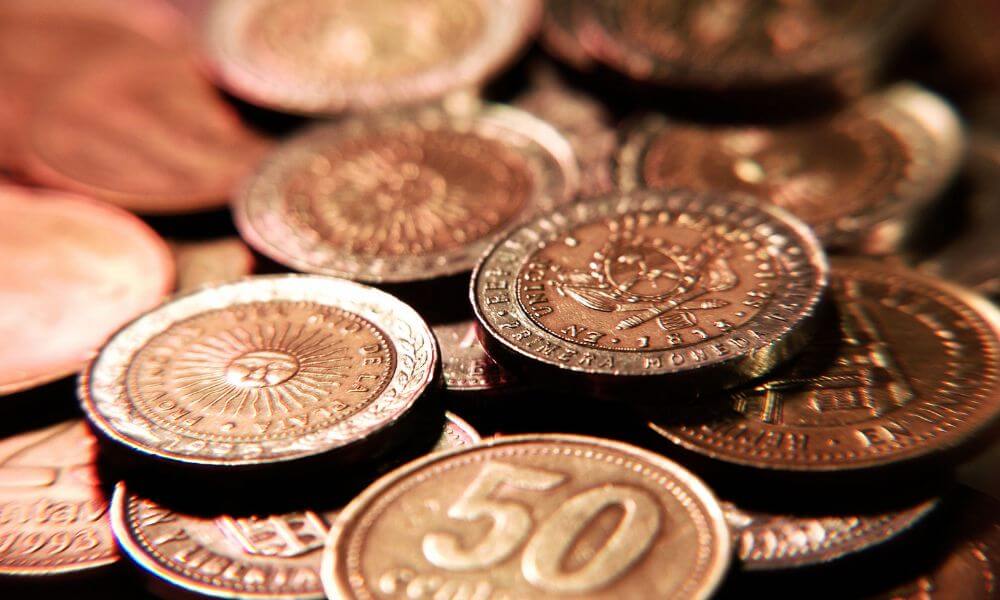
In Argentina, Chile, Peru and Uruguay, you might hear money referred to as mango.
Given all the food items on this list so far, you might think this one refers to the fruit, but in fact this is another from the Lunfardo argot.
There, the term Marengo refers to coins, specifically those minted after the Battle of Marengo.
It is still widely understood in many Spanish speaking nations.
Jurdel
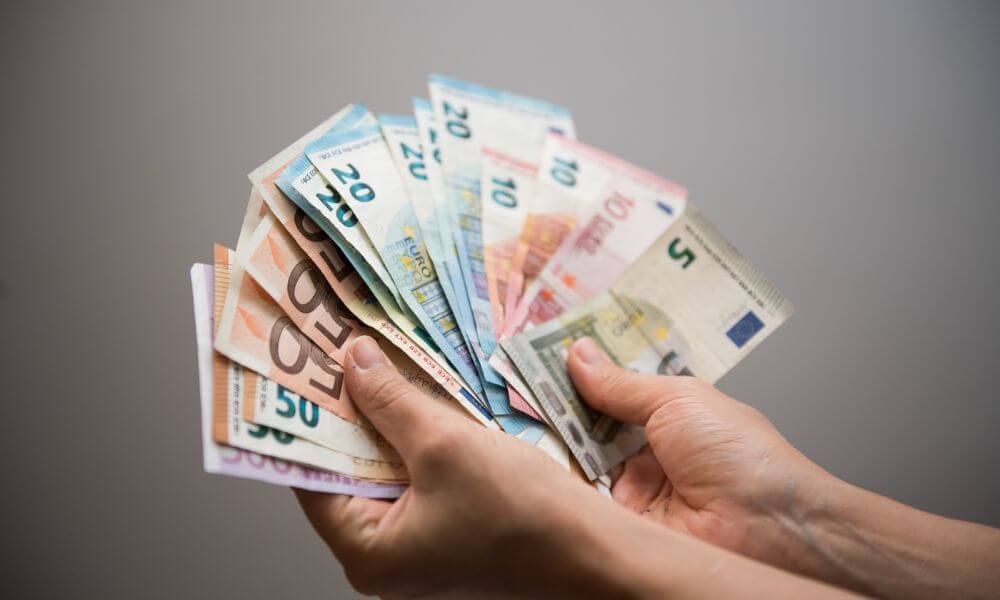
This one is only used in Spain, and is again one used in flamenco circle.
It simply refers to money of any amount or kind, whether a handful of change or a wad of notes.
It could even just be the money in your bank account.
It possibly comes from the word for jack mackerel, jurel, which is a popular and one-time expensive fish.
Chimbilín
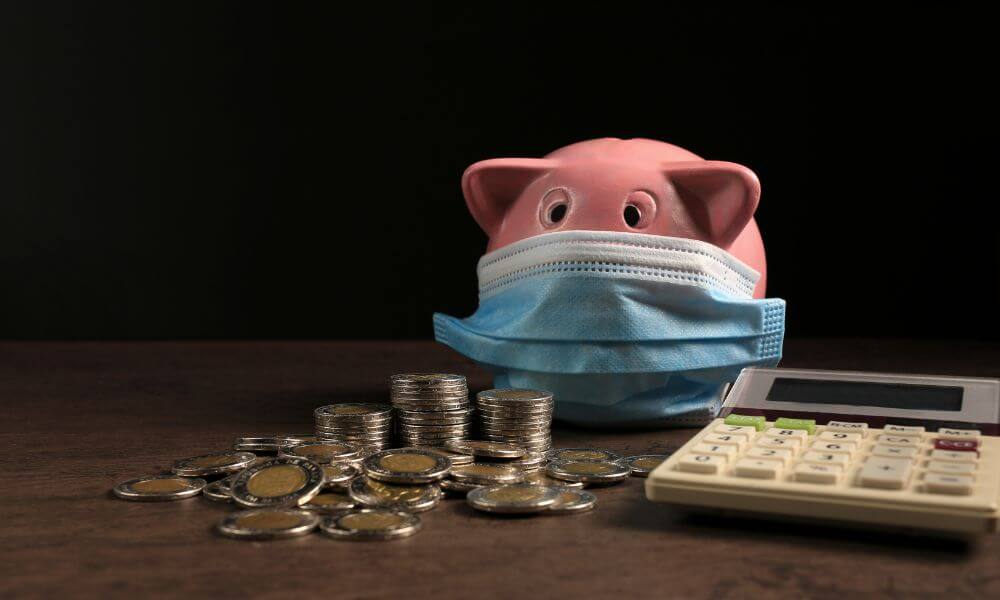
Next we have one you’ll only hear in Panama.
This one refers to money of any kind, though it more commonly used to refer to coins.
It comes from the fruit of the cereus cactus plant, which is just called chimbil.
Then, a suffix is added.
How precisely the jump was made from fruit to coin is unknown, though it may simply be that the fruits were traded much like with papa or other terms deriving from food words.
Cobre
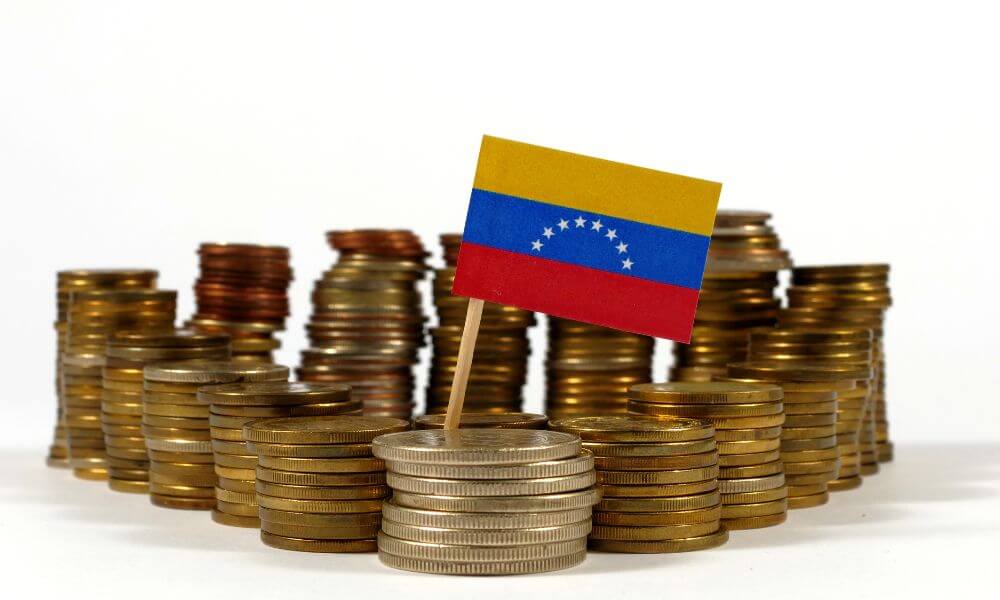
This term means “copper” in Spanish, and in Venezuela, it has come to be a slang term for money.
It is a term meaning coins, specifically the lowest denomination of coins, just as it often is used in British slang, too.
It ultimately derives from the Latin cuprum, meaning copper.
Verdes

Finally, we have the Spanish term verdes.
As you may know, if you have an ear for Spanish, this one simply means greens and is used in several parts of Spain to refer to American dollars.
Green is very often used as a slang term for dollars.
There is certainly no shortage of slang terms for money in the Spanish-speaking world, then.
From Chile and Peru to Puerto Rico and Spain, there are different slang terms for money where ever you go.
At the same time, there are shared slang terms in Spanish that transcend these geographic boundaries.
Try using a few of these terms next time you’re traveling.
More in Spanish slang
- Spanish Slang For American
- Spanish Slang For Brother
- Spanish Slang For Cool
- Spanish Slang For Drugs
- Spanish Slang For Fat
- Spanish Slang For Friend
- Spanish Slang For Girl
- Spanish Slang For Gossip
- Spanish Slang For Immigration
- Spanish Slang For Lazy
- Spanish Slang For Money

